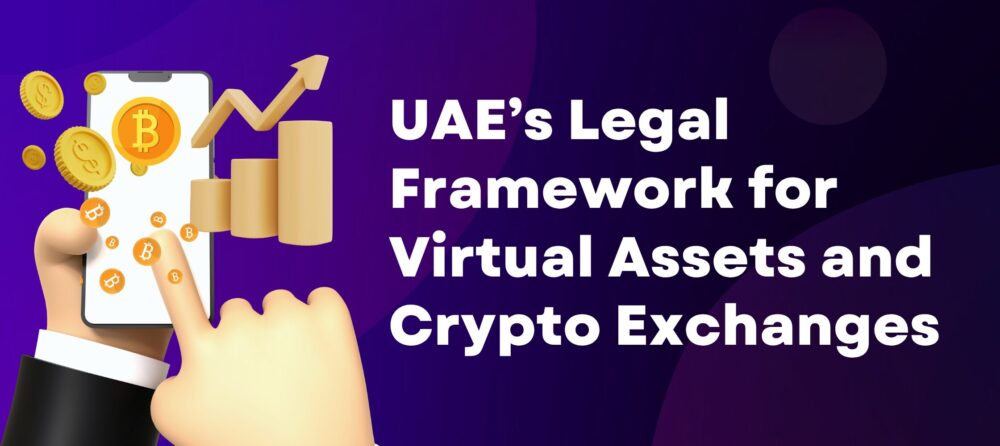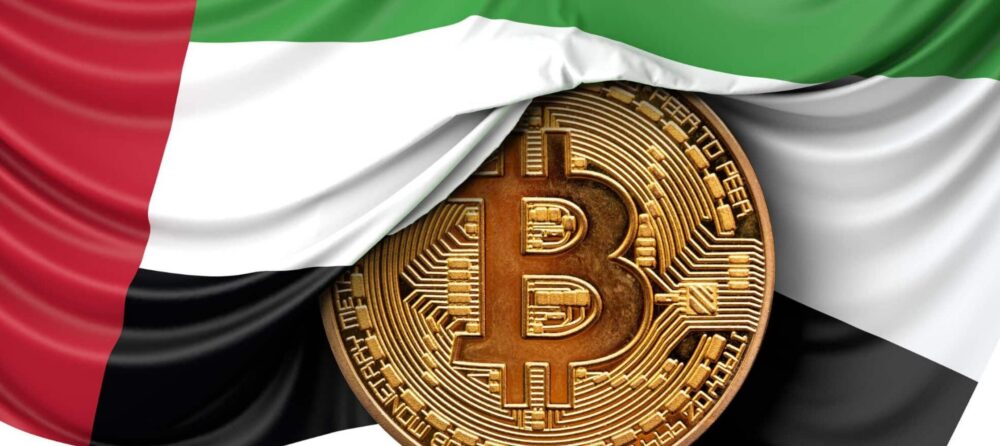
The UAE has emerged as one of the leading regions in the world when it comes to the adoption and regulation of virtual assets and cryptocurrencies. With the growing popularity of digital currencies and blockchain technology, businesses and investors are increasingly looking to the UAE as a hub for crypto exchanges and virtual asset operations. However, as with any financial innovation, regulatory clarity is essential to ensure legal compliance and provide businesses with a secure operating environment.

The Rise of Virtual Assets in the UAE
Virtual assets, which include cryptocurrencies like Bitcoin, Ethereum, and other blockchain-based assets, have gained considerable traction in recent years. The UAE government has recognized the importance of these technologies and has actively embraced the development of a regulated crypto environment. With the global growth of cryptocurrencies, there is a need for clear and coherent laws to ensure that businesses, investors, and exchanges are operating within a secure legal framework.
The Role of Crypto Exchanges in the UAE
A crypto exchange is a platform that allows users to buy, sell, and trade digital currencies. In the UAE, these exchanges play a central role in the cryptocurrency ecosystem. They provide a market for virtual assets, allowing both local and international users to engage in digital asset transactions. Given the potential for significant financial transactions, it is imperative for crypto exchanges to operate within the bounds of the law.
Key Regulatory Bodies and Frameworks
The UAE has taken significant steps to regulate virtual assets and cryptocurrency exchanges to ensure both innovation and investor protection. The two main entities responsible for the regulation of crypto activities in the UAE are the Securities and Commodities Authority (SCA), VARA, and the Dubai Financial Services Authority (DFSA). Additionally, the Abu Dhabi Global Market (ADGM) and Dubai International Financial Centre (DIFC) have developed comprehensive frameworks to regulate virtual asset activities.
1. The Securities and Commodities Authority (SCA)
The SCA, the UAE’s financial regulatory body, has established regulations specifically aimed at virtual assets. These regulations cover various aspects of crypto exchanges, such as market conduct, AML (anti-money laundering) requirements, and KYC (know your customer) obligations. In 2020, the SCA issued a set of regulations for crypto assets to ensure that companies dealing in digital assets comply with national security laws, providing a safe environment for businesses and consumers alike.
The SCA’s regulatory framework also allows cryptocurrency trading platforms to obtain licenses, provided they meet stringent compliance and operational standards. The goal is to ensure that exchanges operate transparently and protect investors from potential risks associated with fraud and market manipulation.
2. Dubai Financial Services Authority (DFSA)
The DFSA, based in the Dubai International Financial Centre (DIFC), is another key regulatory body that governs financial activities in Dubai. The DFSA has taken a proactive approach to the regulation of virtual assets by introducing a comprehensive legal framework for crypto businesses.
In 2020, the DFSA introduced specific regulations for crypto tokens and cryptocurrency trading platforms, focusing on investor protection, AML, and cybersecurity. The DFSA’s framework encourages the development of virtual asset services while ensuring that businesses are subject to rigorous compliance requirements. This provides legal clarity and transparency, helping businesses and investors alike navigate the evolving crypto landscape.
3. Abu Dhabi Global Market (ADGM)
The ADGM, a financial hub located in Abu Dhabi, has been at the forefront of crypto regulation in the UAE. ADGM introduced its regulatory framework for virtual assets back in 2018, becoming one of the first jurisdictions in the region to establish clear guidelines for the operation of crypto businesses.
Under the ADGM’s regulations, virtual assets and crypto exchanges must obtain a license to operate. These businesses are also required to adhere to AML and KYC regulations to prevent illicit activities such as money laundering and terrorist financing. The ADGM’s progressive approach has made it an attractive location for crypto startups and exchanges looking to operate within a regulated environment.

Licensing and Regulatory Compliance
Licensing for Crypto Exchanges
In the UAE, obtaining a license is a key step for any crypto exchange wishing to operate legally. The licensing process varies depending on the jurisdiction:
- SCA Licensing: Exchanges operating within mainland UAE must comply with the regulations set out by the SCA, which require them to obtain a virtual asset license. This process involves meeting requirements related to capital adequacy, AML compliance, and ensuring that the exchange adheres to UAE’s financial laws.
- DFSA Licensing: Exchanges operating within the Dubai International Financial Centre (DIFC) are required to obtain a license from the DFSA. This includes compliance with investor protection rules, cybersecurity standards, and reporting obligations.
- ADGM Licensing: Crypto exchanges wishing to operate within Abu Dhabi’s financial ecosystem must be licensed by the ADGM’s Financial Services Regulatory Authority (FSRA). The FSRA enforces strict rules related to market integrity, transparency, and compliance.
AML and KYC Compliance
To combat money laundering and other illicit financial activities, crypto exchanges in the UAE are subject to strict AML and KYC regulations. These regulations require exchanges to:
- Conduct due diligence on customers before allowing them to trade.
- Maintain detailed records of transactions to help authorities track suspicious activity.
Report any suspicious transactions to regulatory bodies as required.
UAE’s Vision for Virtual Assets and Blockchain Technology
The UAE government has recognized the economic potential of virtual assets and blockchain technology. By establishing a legal and regulatory framework for crypto exchanges, the UAE has positioned itself as a leader in the global crypto industry.
The country’s commitment to innovation is evident through initiatives such as the Dubai Blockchain Strategy, which aims to integrate blockchain into various sectors, including finance, healthcare, and supply chain management. With a focus on security, regulatory compliance, and market transparency, the UAE’s legal framework for virtual assets ensures that businesses can operate in a secure and regulated environment while capitalizing on the opportunities offered by blockchain technology.
Conclusion: Navigating the UAE’s Legal Framework for Virtual Assets
The UAE’s regulatory framework for virtual assets and crypto exchanges has set a global standard for how these businesses should operate within a safe and compliant environment. As more companies enter the world of digital currencies, understanding the legal landscape is crucial for ensuring long-term success.
Whether you are an entrepreneur looking to launch a crypto exchange, an investor considering digital assets, or a business looking to adopt blockchain technology, it is essential to work with a legal professional who understands the complexities of this evolving field. At Al Adly & Co., we are committed to providing expert legal guidance to help you navigate the regulations surrounding virtual assets and cryptocurrencies in the UAE.
